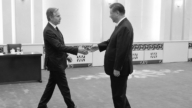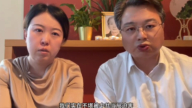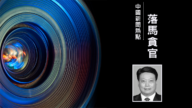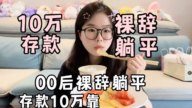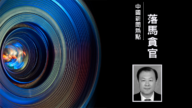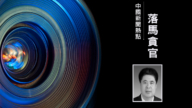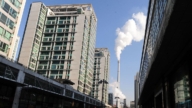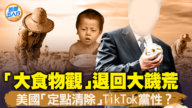【新唐人2011年5月20日讯】中共政法系统官员最近公开发文,以全面否定的语气提及“公民社会”,并指责西方为中国“设计”了所谓“公民社会”的“陷阱”。文章一刊出,引起网路和各界人士的强烈反响。请看报导。
一名中共高级政法官员周本顺,16号在中共机关刊物《求是》发表文章:《走中国特色社会管理创新之路》,文章明确提出要警惕“公民社会”。
周本顺攻击“公民社会”这一概念,称它是“某些西方国家”为中国“设计”的“陷阱”,要防止“误信、误传”甚至“落入”这一“陷阱”。
文章中,周本顺强调,“加强与创新社会管理”不是过多的把政府的事情交给社会去办,而是要加强对社会组织的规范。而对于社会组织(NGO等),是将他们纳入党委和政府主导的社会管理体系。同时,事先设好“安全阀”,防止一些所谓“别有用心”的社会组织繁殖起来。
专栏作家,也是资深的政经评论家林保华向《新唐人》表示,中共现在把中国的非政府组织(NGO),当作他们的重要敌人。
林保华(资深政经评论家):“因为共产党不准有反对党存在,也不许异议人士组成团体。因为我们知道,四川大地震以后,有很多NGO组织都到灾区去赈灾,有许多人被捕。所以共产党更是把这个NGO组织,把正常的公民社会里面民众组织的这些团体,当作可能颠覆它们政权的危险组织。”
在此之前,中共中宣部曾向中国各级媒体发出宣传禁令,要求禁止使用“公民社会”这一概念,有些媒体无奈,只好用“民间社会”等词语替换。林保华认为,社会公民服从的是公共社会,不是国家。
林保华:“他就怕‘公民意识’,因为‘公民意识’就觉得我(公民)有什么权利,一般公民有的‘义务’就是交税,但同样的我有权利啊!那,你不准我有言论自由,不准我作这个、不准我作那个,我可以说‘公民’抗命啊!所以,(中共)就把公民提出来为“陷阱”问题。就拿来制造危人耸听的言论,什么陷阱?所谓陷阱,将来可能就是(中共)所谓颠覆共产党的机构。”
对于周本顺提出的观点,《法国国际广播电台》提出质疑,报导说,现在的问题是,这到底是北京高层在十八大前的“策略之举”,还是预示着中共未来的“长远战略”?如果是前者,人们也许还能尝试忍受;如果是后者,那么中国的前途就堪忧了。
中国贵州人权研讨会人士:“我们今天在网站上看见周本顺这个说辞,实际上在中共政权里是长期都在实行的。在进行通话、或接受你的采访,他们都是进行了严密的监控和录音的。在这个问题上我认为,他们已经在穷途末路了,没办法的情况下实施的一些策略。 ”
北京2月份举办的“省部级主要领导干部社会管理创新研讨班”上,中共常委胡锦涛、周永康分别有强硬的讲话,而后,在全国两会上,中共另一常委、全国人大委员长吴邦国则在常委会报告中表态“三不搞”。
《法广》认为:这些表态,被认为是在所谓“矛盾凸显期”,(这时期)中共执政者全面收集“意识形态”,而周本顺的这一文章,则是在政法与社会管制领域(当局)“强硬”变化的具体表述。
新唐人记者常春、唐睿、孙宁采访报导。
Civil Society “A Trap”
CCP’s (Chinese Communist Party) political
and law officials recently published an article
which completely refuted the concept
of “civil society,” and accused western societies
of making the trap of “civil society.” Once published,
the article aroused strong reactions among netizens
and people from all circles.
Senior CCP political and law official,Zhou Benshun
published the article “Road of Social Management
Innovation with Chinese Characteristics,”
in Seeking Truth magazine, on May 16. It warns
people to be alert about the “civil society.”
Zhou attackes the concept of “civil society”
by calling it “a trap by some western countries”
for China. He warned people not to “mistrust,
misrepresent” or “fall into the trap.”
Zhou stresses in his article
“to intensify and innovate social management”
is to not let society take up the governments’ duty,
but to intensify restrictions on social organizations.
NGOs should be incorporated
into CCP’s social management system. Meanwhile,
authorities should set a “safety valve” in advance
to avoid “ill-intentioned” organizations’ propagation.
Lin Baohua, a columnist and distinguished political
and economic critic, told NTD
that CCP now treats NGOs as its principal enemy.
Lin Baohua: “CCP doesn’t allow opposition parties
or dissident groups. As we know,
after the Sichuan Earthquake, many NGOs
went to disaster areas to help with people’s relieve,
but many of them were arrested. CCP even
treats NGOs, which consist and are organized
by normal civilians, as dangerous enemies
who may overthrow their rule.”
Previously, China’s Central Propaganda Department
enacted a ban for all Chinese media, requiring them
to stop using the concept of “civil society.”
Reluctantly, media could only use “folk society.”
Lin believes that what civilians should obey
is the civil society, not the country.
Lin Baohua: “CCP fears ‘civil awareness’,
because ‘civil awareness’ reminds people
of their rights. Civilians have obligations
like paying taxes, but they also have rights!
Being aware of this, civilians may disobey rules
which are against freedom of speech
and forbids people from doing this and that.
Therefore, (CCP) describes ‘civil society’
as a “trap to scare people.” Where is the trap?
The “trap” might overthrow the government
as the CCP fears.”
According to Radio France Internationale’s (RFI)
report, which questioned Zhou Benshun’s opinion,
the problem now is whether it’s Beijing authorities’
would take “strategic measure” before CCP’s
18th National Congress or a “long-term strategy”
in the future. The former might be tolerated,
but the latter will ruin China’s future.
People from a human rights workshop in Guizhou,
said: “What Zhou Benshun says today on the site
has long been carried out by CCP’s regime.
Even when making calls and being interviewed,
they closely watch and record what you say.
I think they have reached the end of the road
on this problem and could do nothing else.”
At the “Provincial and ministerial cadres’ workshop
on social management innovation” in Beijing
this February, Hu Jintao and Zhou Yongkang
both delivered tough speeches.
Then in the Two Conferences, Wu Bangguo
(Chairman of the Standing Committee
of the National People’s Congress)
expressed the attitude of “three not to engage.”
RFI believes: “These phenomena reflect that CCP
is collecting ideologies extensively
during this controversial period. Zhou’s article
described this change in the fields of politics, law,
and social management in details.”
NTD reporters Chang Chun, Tang Rui and Sun Ning



